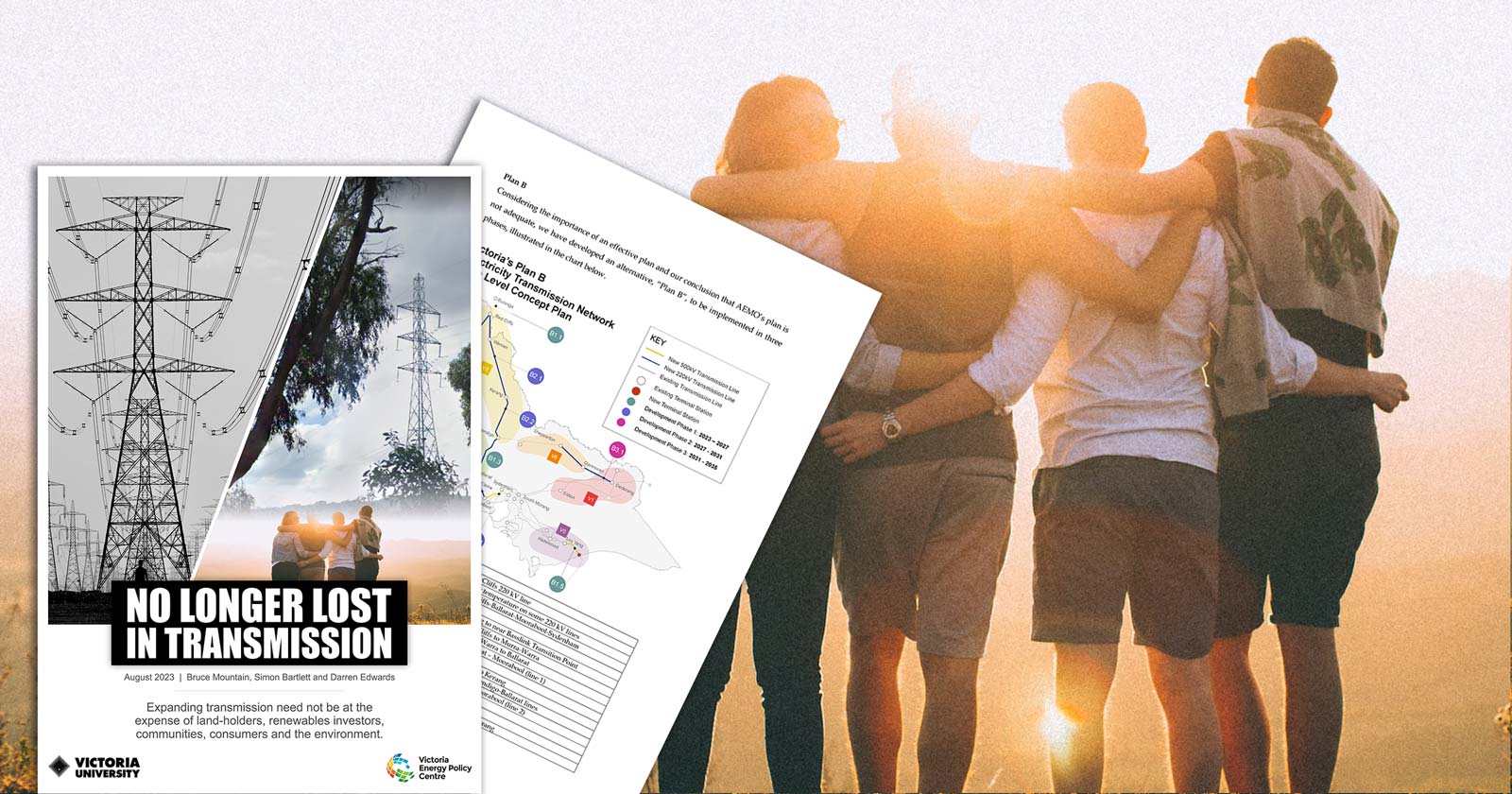
There is a Plan B
Plan B can be delivered at a significantly reduced cost.
Plan B delivers a lower cost to consumers.
Plan B delivers a significantly reduced impact to communities.
Why is the State Government rejecting Plan B?
AEMO and the State Government have responded to Plan B with baseless claims, suggesting neither have read or understand the plan. Both AEMO and the State Government do not appear to be acting in the interests of Victorians and this raises questions about the real reasons for their decisions. Why is the government continuing to support an inept planner (AEMO) and transmission network service providers who pass on the costs of the assets that they build to all Victorians?
All is not lost
For more than three years, Victoria’s regional communities have faced a David and Goliath battle against the Australian Energy Market Operator (AEMO) and its proposed large-scale high-voltage transmission projects (WRL and VNI West). Community opposition has been fierce and relentless as we oppose not only the direct impact on our regions, communities and livelihoods, but the regulatory framework and planning process.
Communities across regional Victoria have rightly reacted to poor planning and engagement, lack of public participation in the decision-making process, broken regulatory framework that is delivering these projects, lack of trust in the cost benefit analysis, lack of holistic coordination within and between jurisdictions, lack of transparency and trust in the institutions delivering transmission projects. This is what needs to be fixed rather than bulldozing ahead via Ministerial Orders and expecting communities to ‘accept’ the burden and outcomes of a planning framework that is broken.
According to seasoned energy experts, VNI West promises much but will deliver little. The Victoria Energy Policy Centre (VEPC), in collaboration with Simon Bartlett and Darren Edwards, has studied the VNI West proposals intensively for several years. The consolidated critique set out in their report substantiates these claims. Instead of developing a single super-highway, “Plan B” proposes augmentations mostly of existing lines, using existing easements that they conclude will greatly expand Victoria’s renewable generation hosting capacity, in a way that will be more acceptable to consumers, regional communities, land holders, renewables developers and the environment.
“Plan B: No longer lost in transmission” was officially launched on 2 August 2023.